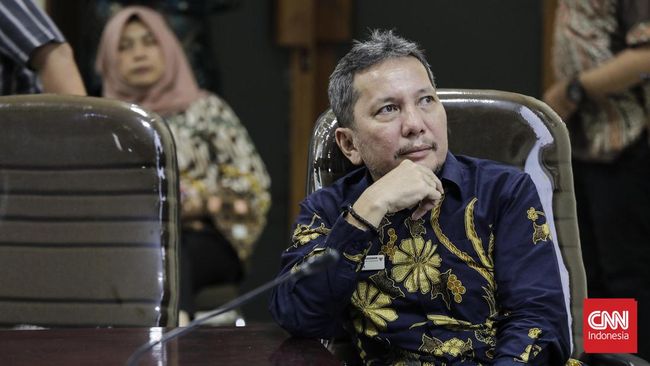Jakarta, CNN Indonesia —
Ex member Ombudsman RI Ahmad Alamsyah Saragih reminded that there would be administrative sanctions if the Corruption Eradication Commission (KPK)NCP) does not carry out the recommendations of the Indonesian Ombudsman regarding implementation transfer the status of an officer.
“There are administrative sanctions, there are moral and social sanctions. When the moral sanctions are announced, they are submitted to the DPR and the DPR can also summon, convey to the President, the public can find out at website, can see the detailed inspection results, statement, the facts that exist,” said Alamsyah, in Indonesian Law School of Machinery online discussion, Friday (6/8).
“That then people feel dignityis broken, that’s the penalty. In the past, when given the opportunity to make repairs voluntary don’t want to. Now it’s open to the public, feels like it’s been downgraded, can’t it? That’s the risk,” continued the member of the Ombudsman for the 2016-2020 period.
He explained that the implementation of the Final Examination Report (LAHP) is voluntary and has a 30 day time limit. In that time frame, said Alamsyah, the Indonesian Ombudsman opened up space for the reported parties, including the KPK leadership, to consult.
In this case, Alamsyah did not question the KPK’s objection as long as it was relevant.
“But, if it’s irrelevant, he [KPK] don’t perform either, [LAHP] will go up as a recommendation. If 30 days later the corrective action is not implemented voluntary, then enter one unit of resolution and monitoring Recommendations will be made,” he said.
“When a recommendation is issued, it is mandatory to implement it. It has been regulated by law,” he continued.
On that occasion, Alamsyah also regretted the attitude of the Deputy Chairperson of the KPK, Nurul Ghufron, who actually accused the Indonesian Ombudsman of being the perpetrator of maladministration.
“If he wants to raise objections, convey it to the public, that’s okay. But, yeah, don’t offside give statement which is not under the authority of the KPK. That’s embarrassing. That’s my note for Ghufron.” asserted he had also led the Central Information Commission (KIP) as chairman in the 2009-2011 period.
Previously, the KPK objected to following up on the findings of the Indonesian Ombudsman related to maladministration of the implementation of the transfer of the status of KPK employees to ASN.
The anti-corruption agency refused to carry out corrective action by the Indonesian Ombudsman, one of the points of which was to request that 75 employees who did not pass the TWK be transferred to ASN status.
Nurul Ghufron assessed that the Indonesian Ombudsman violated the constitution and authority, violated the legal obligation to stop the examination of reports that were in the process of being examined, and was inconsistent and illogical because the findings and corrective actions were not correlated.
Responding to Alamsyah, Nurul Ghufron said that his party only used the right to file an objection as regulated in the Ombudsman regulation.
“KPK uses the procedural rights regulated in the ombudsman regulations, wherein the right to file objections is regulated,” he said, without elaborating on the regulations in question.
“There’s no need to get used to things that are normative, there are rules,” said Nurul.
In announcing the complaint regarding the alleged maladaptation of TWK, the Indonesian Ombudsman stated that the suggestion for improvement would serve as a guide for Jokowi if corrective action was not carried out by the KPK or the National Civil Service Agency (BKN) as the party implementing the TWK assessment.
In an announcement delivered by Indonesian Ombudsman Robert Na Endi Jaweng on July 21, it was said, “The President needs to provide guidance to the Head of KPK, Head of BKN, Head of LAN, Minister of Law-Human Rights, and Minister of PAN-RB.”
(ryn/kid)
– .


